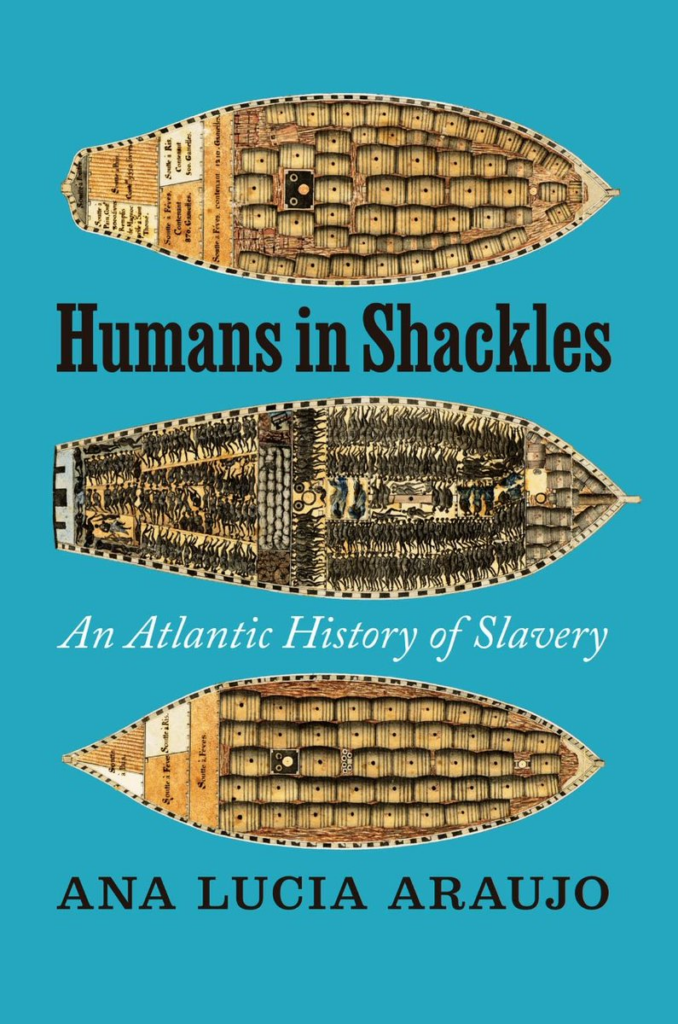Prof. Ana Lucia Araujo, Humans in Shackles: An Atlantic History of Slavery
On October 22, the Center for the Study of Slavery and Its Legacies hosted Prof. Ana Lucia Araujo (Howard U.) presenting her new book Humans in Shackles: An Atlantic History of Slavery (U of Chicago P, 2024)

Prof. Ana Lucia Araujo
Prof. Ana Lucia Araujo (Department of History, Howard University) was invited by the Center for the Study of Slavery and Its Legacies to discuss her recently published book Humans in Shackles: An Atlantic History of Slavery (U of Chicago P, 2024).
During the era of the Atlantic slave trade, more than twelve million enslaved Africans were forcibly transported to the Americas in cramped, inhumane conditions. Many of them died on the way, and those who survived had to endure further suffering in the violent conditions that met them onshore. Covering more than three hundred years, Prof. Araujo’s Humans in Shackles grapples with this history by foregrounding the lived experience of enslaved people in tracing the long, complex history of slavery in the Americas.

Based on twenty years of research, her book offers a transnational account that emphasizes the central role of Brazil in the Atlantic slave trade. Additionally, it is deeply informed by African history and shows how African practices and traditions survived and persisted in the Americas among communities of enslaved people. Drawing on primary sources including travel accounts, pamphlets, newspaper articles, slave narratives, and visual sources such as artworks and artifacts, Araujo illuminates the social, cultural, and religious lives of enslaved people working in plantations and urban areas, building families and cultivating affective ties, congregating and re-creating their cultures, and organizing rebellions.
Humans in Shackles puts the lived experiences of enslaved peoples at the center of the story and investigates the heavy impact these atrocities have had on the current wealth disparity of the Americas and rampant anti-Black racism.